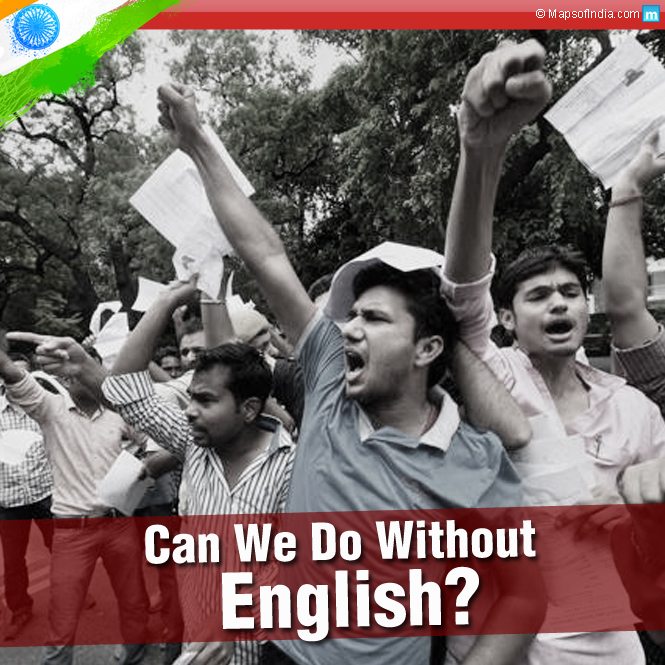Is there any correlation between the coming Assembly elections and by-elections – in Haryana, Uttar Pradesh, Bihar and Maharashtra – and the Centre’s decision not to consider marks scored in English in the Civil Services Aptitude Test (CSAT) while deciding rank or merit in the Union Public Service Commission (UPSC) examinations?
Tasting victory, those protesting against the English test are now pressing for scrapping the CSAT itself which is meant to evaluate reasoning and mathematical abilities of candidates aspiring to join all-India civil, police, foreign, revenue and other allied services.
Discontinuation of regional language
Those opposing English and CSAT argue that the system is loaded against candidates with humanities as their academic background and favours science, engineering and commerce graduates. The previous Congress-led government’s decision to scrap the system of allowing candidates to appear in the main UPSC examinations in any regional language had faced flak from non-Hindi speaking States. Candidates can now choose between Hindi and English as their language for the main examination. Only those candidates are allowed to use a regional language who have done their graduation in that language.
The earlier system of allowing regional language as an optional subject of literature was discontinued following complaints that the examiners favoured candidates from their respective region and to ensure a level-playing field to all candidates irrespective of their linguistic background.
The decision to exclude marks of English from CSAT in calculating ranking is perceived by those with science, engineering, medical and commerce background as succumbing to the pressure from the Hindi lobby. Candidates, preparing for the CSAT examinations have been holding demonstrations and protests in Delhi for over a month, many a time leading to clashes with the police. The protesters were mainly from the Hindi-speaking States who make Delhi as their base, attending coaching classes that abound in the National Capital Region.
UPSC’s argument Vs. another provision
The test in basic English comprehension carries only 20 marks and thus does not carry much weight. The UPSC considered a test in English comprehension necessary for the candidates because after their selection they can be posted anywhere in the country where a minimum understanding of English is necessary to carry out their routine official work.
As it is, after a successful candidate is inducted into any of the Central services he or she has to learn the language of the State of his or her posting. If a South Indian can learn a North Indian language, and vice versa, why can’t he or she pick up a working knowledge of English, goes the argument.
The decision not to include the marks of English in CSAT for deciding the merit of the candidate is perceived by non-Hindi-speaking States as the ruling Bharatiya Janata Party’s attempt to make Hindi the national link language, a resolve some of the ministers reiterated after Narendra Modi assumed the office of the Prime Minister.
Language has always been a sensitive subject ever since independence and has often seen violent protests, the main rivals being Hindi and English. The overwhelming support that the BJP received from the Hindi heartland in the last Lok Sabha elections followed by the recent decision with regard to the English marks in CSAT has further accentuated the Hindi-English divide.





